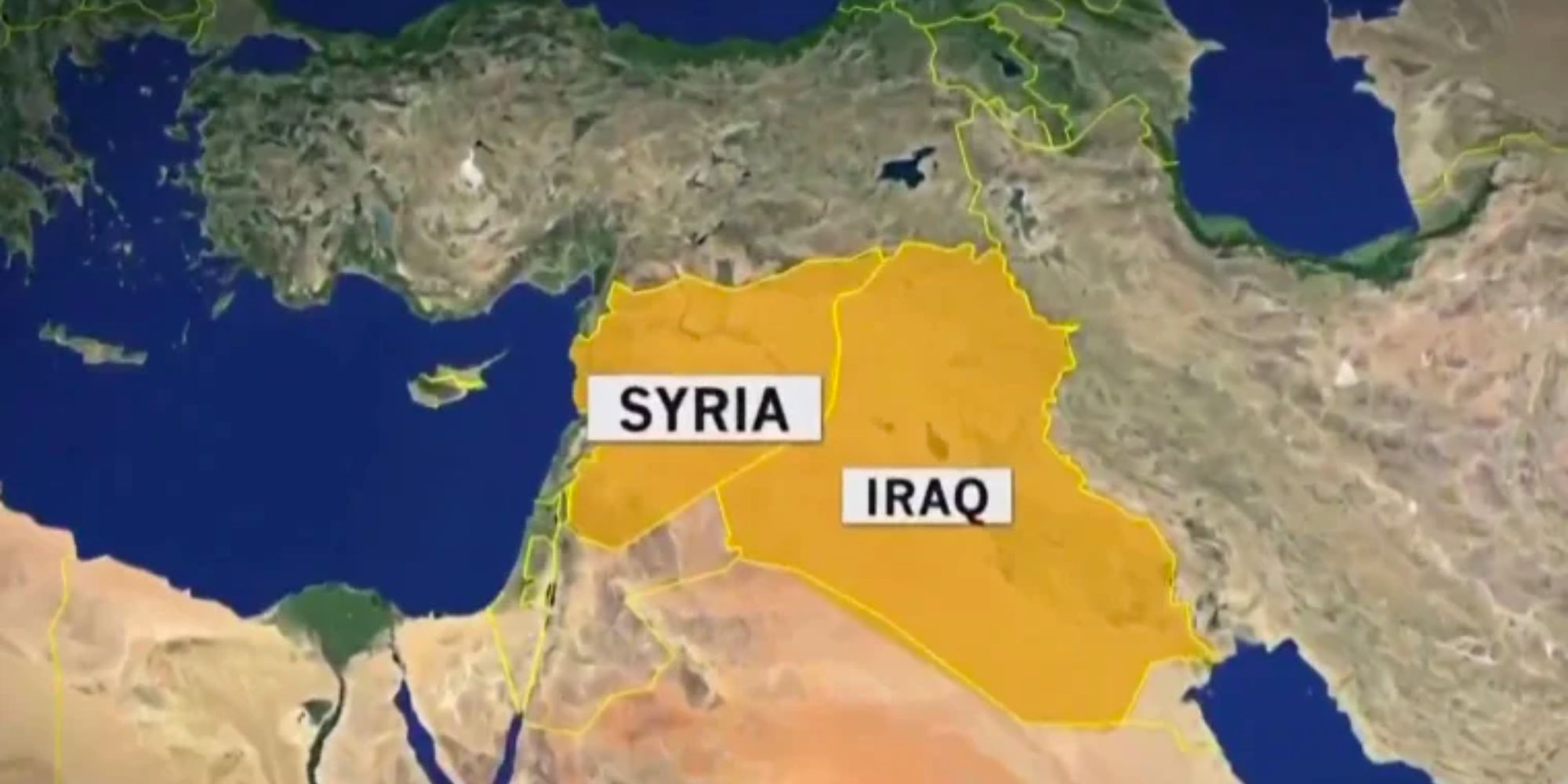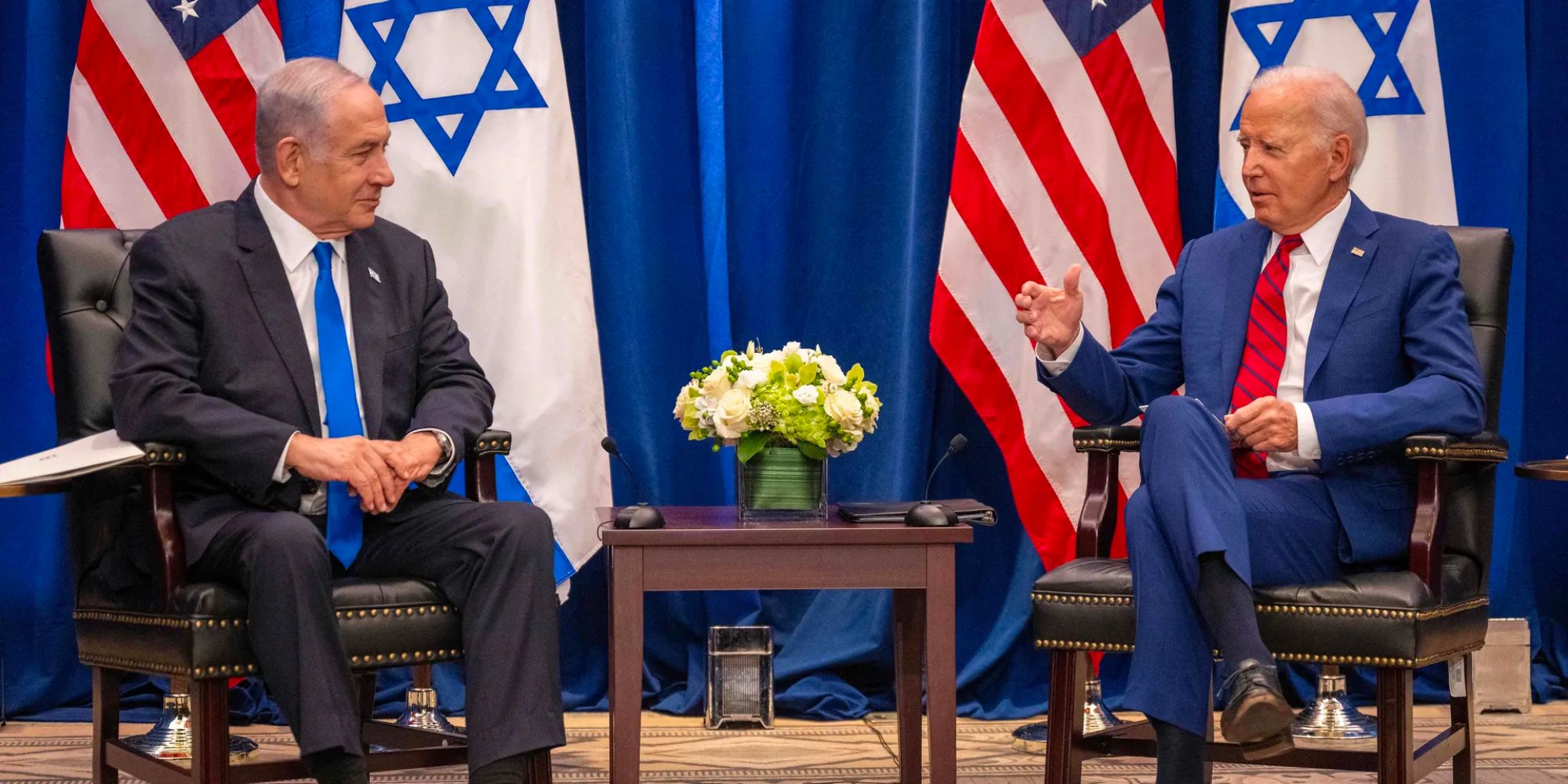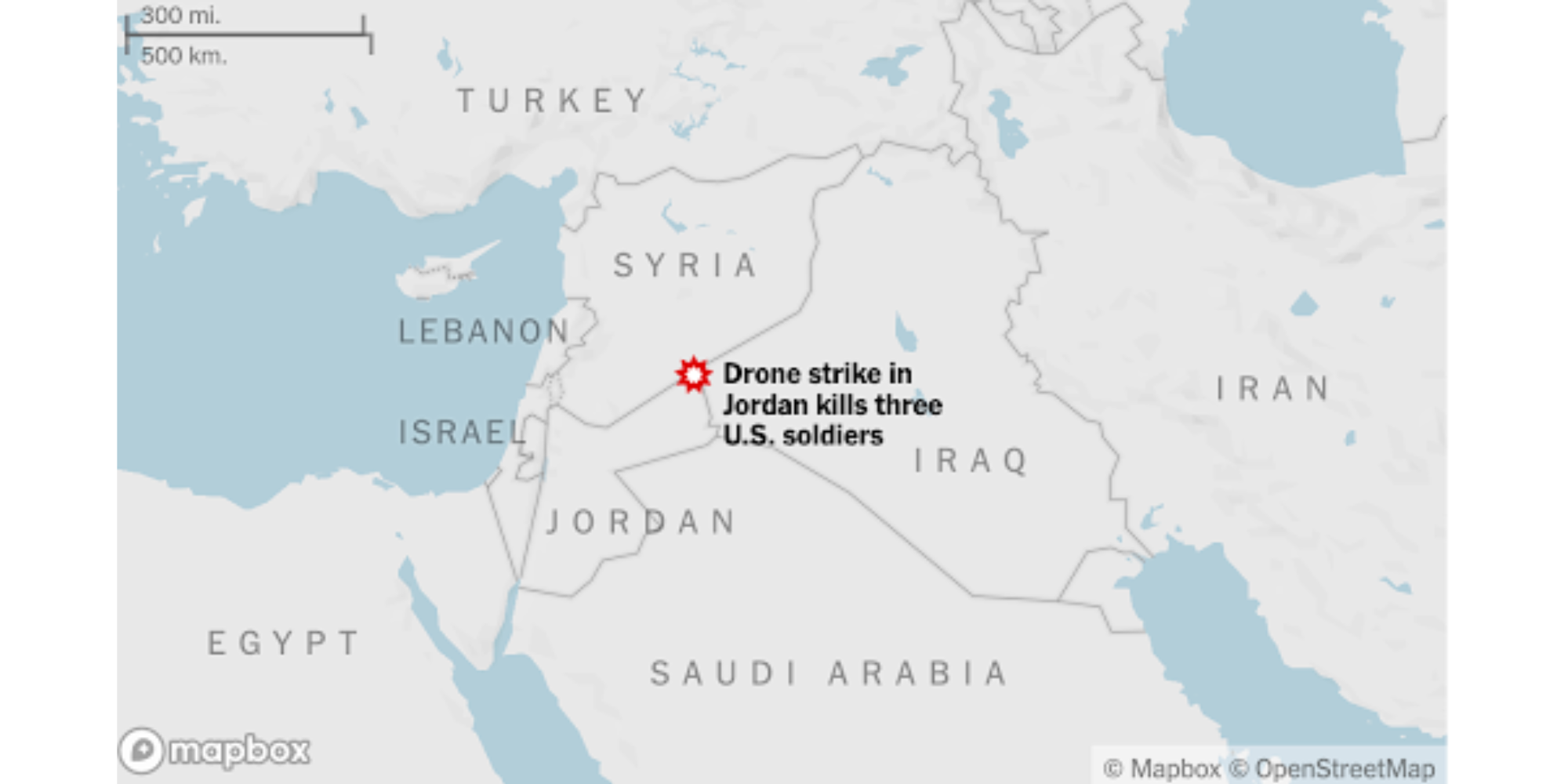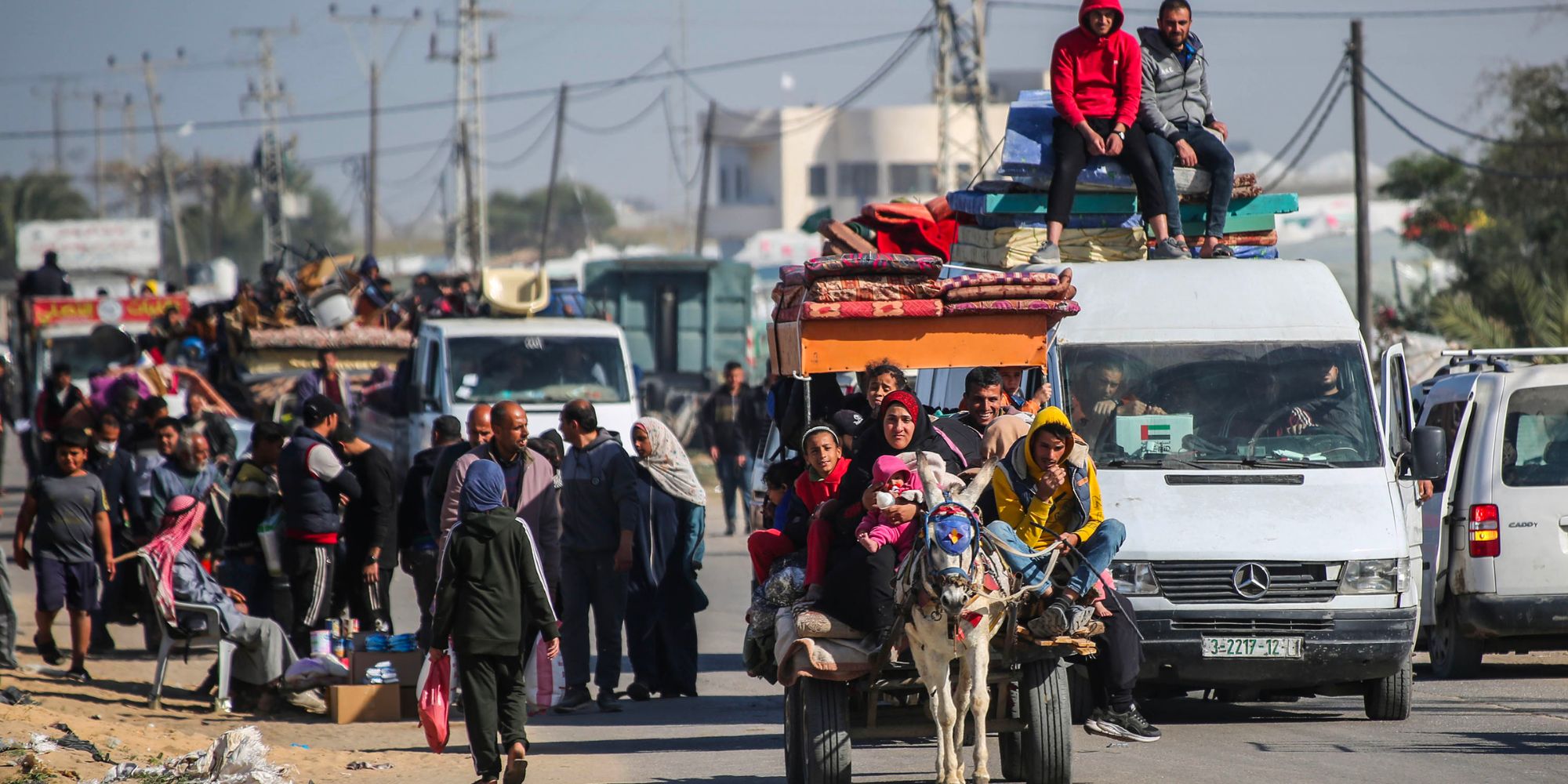Current as of 10:00AM EST, 5FEB24
RECENT UPDATES
The United States launched a series of air strikes over the weekend against Iranian targets in Iraq and Syria in response to the deadly drone strike that killed three U.S. service members last week. The political divide is growing in Israel with Prime Minister Netanyahu under increasing domestic pressure for his management of the war and the hostage crisis as protests continued for the third straight week. Despite Israeli military operations, there are signs of a Hamas resurgence in Gaza City, underscoring the group’s resilience and strong presence in the area. According to a PBS report, Hamas is resurfacing in areas within Gaza where Israel withdrew the bulk of its forces weeks ago, and the group is deploying police officers and making salary payments to some of its civil servants in Gaza City in an effort to reestablish law and order.
- Humanitarian Crisis: Aid is now flowing into Gaza following Israel’s declaration last week that the area around the Kerem Shalom crossing is a closed military zone and after U.S., Egyptian, and the United Nations (UN) officials reached an agreement to close the Kerem Shalom and Nitzana crossings on Saturdays to allow the UN to distribute goods inside Gaza that day. These moves follow several days of protests last week from hundreds of Israeli demonstrators who blocked aid trucks from entering the Kerem Shalom crossing. Over the weekend, at least 83 trucks entered Gaza through the Kerem Shalom crossing from Israel, and four trucks carrying cooking gas entered through Egypt’s Rafah crossing. According to the Israeli government, at least 79 aid trucks entered the Strip on Friday. According to the Palestinian Ministry of Health, at least 27,300 people have been killed in the Gaza Strip since the start of the war.
- U.S. Support: In retaliation for the drone strike that killed three U.S. service members in Jordan on January 28, Washington launched a series of airstrikes on February 2 in Iraq and Syria. According to U.S. Department of Defense officials, the U.S. destroyed or damaged 84 out of 85 targets. Following attacks on global shipping lanes in the Red Sea, the U.S., the U.K., and several other nations also hit at least 30 Houthi targets in Yemen on February 3, with U.S. forces also striking a Houthi anti-ship cruise missile on February 4. National Security Adviser Jake Sullivan told CNN the U.S. will take “further action” following the strikes over the weekend. On February 4, the Senate appropriations committee released the text of a sweeping $118.3 billion emergency spending package which includes $14 billion for Israel and $10 billion for humanitarian assistance for civilians in Gaza and the West Bank. An initial vote is expected this week but the fate of the bill is uncertain as it is tied to hotly contested border security legislation.
- Military Operations: The Israeli military continued air strikes in the Gaza Strip over the weekend. According to a doctor at Al-Aqsa Martyrs Hospital, at least 14 Palestinians were killed on February 4 following three Israeli airstrikes in Deir al-Balah. The strikes followed airstrikes in Rafah on February 3, which killed at least 17 people, according to a doctor from the Abu Youssuf Al-Najjar Hospital. The Israeli Defense Forces (IDF) claims it has no knowledge of any strike in Rafah. According to the Palestinian Ministry of Health, the total killed in Israeli airstrikes in the past several days is at least 127 people. An IDF spokesman said the IDF attacked “the operational headquarters and a military structure of Hezbollah” in southern Lebanon over the weekend. He said the military has hit more than 3,400 Hezbollah targets in Lebanon and more than 50 in Syria since the war began to stop Hezbollah ammunition and missiles from being smuggled from Iran to Syria, and then into Lebanon.
- Regional Relations: Secretary of State Blinken arrived in Saudi Arabia on February 5 to make progress on a hostage deal, coordinating “the day after” for Gaza, and trying to ensure the war does not escalate into a wider regional conflict. Israel’s war cabinet concluded its meeting on February 4 without consensus about the next steps for the release of Israeli captives from Gaza. Thousands of people demonstrated in Israel to demand a change in government and the release of Hamas-held hostages. More protests are scheduled for next Saturday, 10 February. In response to U.S. airstrikes on Iranian targets, Iranian Foreign Minister Hossein Amir-Abdollahian told the UN Special Envoy for Yemen, the attacks “have complicated the situation and made it more difficult to reach a political solution.” Meanwhile, Houthi leadership vowed to retaliate following U.S. and U.K.-led strikes and said they will continue their military operations against Israel until “the crimes of genocide in Gaza are stopped.”
- Protests: Protests continued in cities across the world over the past week. Protestors, covered in fake blood, held a mock kidnapping on February 4 outside of BBC’s headquarters in London to draw attention to the plight of Israeli women captive in Gaza. On February 3, approximately 300 demonstrators, organized by Memphis Voices for Palestine and Palestinian Memphians, blocked traffic on the Hernando de Soto bridge between Tennessee and Arizona. On February 2, an anti-Israel protest attended by thousands of demonstrators outside of Columbia University in New York led to several arrests after clashes with police. During President Biden’s visit to Michigan on February 1, at least 200 protestors congregated outside of the United Auto Workers building to call for a ceasefire in the war. Also on February 1, nearly two dozen people were arrested in D.C. due to demonstrations against the war in Gaza which blocked several major roads.
CYBER IMPLICATIONS
Last week, the U.S. targeted Iran with sanctions targeting Iran’s ballistic missile and drone programs, and its ability to wage cyber warfare against the U.S. Two U.S. officials also said the U.S. conducted cyber operations against Iranian targets on February 2, but declined to provide details on the attacks, according to The New York Times. Among those targeted with sanctions are the head of Iran’s Islamic Revolutionary Guard Corps (IRGC) Cyber Electronic command and five senior officials. U.S. officials said the cyber unit is responsible for a series of malicious cyber activities targeting critical infrastructure in the U.S. and other countries.
CONCENTRIC’S RECOMMENDATIONS
We continue to urge anyone with business interests in Israel and the surrounding regions to exercise extreme caution, and to consider postponing any upcoming travel. We also encourage travelers to avoid all demonstrations and maintain awareness of their surroundings in areas with protest activity. Travelers and businesses should also consider:
- Watching for updated U.S. Department of State worldwide travel advisories.
- Avoiding areas in and around Israel, Lebanon, Egypt, Saudi Arabia, Qatar, and other portions of the Gulf.
- Reaching out to Concentric’s experts for support. Concentric can provide:
- Emergency evacuation and secure transportation, and support from local partners;
- Active monitoring and intelligence support, including tailored risk and travel assessments;
- Tailored security consulting and executive protection agents;
- Cybersecurity and digital privacy protection.
If you are interested in a briefing with Concentric’s Chief Executive Officer Mike LeFever or a member of Concentric’s team on any of these topics, please do not hesitate to contact us.
Source of feature image: New York Times.






